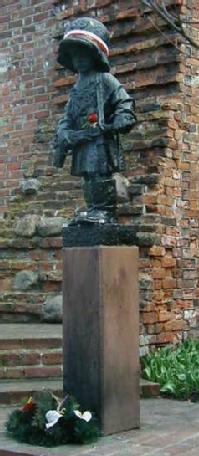Seminar J: Traumatic Experiences
-
How do nations deal with traumatic experiences?
-
What effect did the Second World War have on Polish, Ukrainian, and Russian collective memory?
-
How did the Bolsheviks’ approach to Russian national history change between 1917 and 1945?
-
How did the Soviet Government try to make Ukrainian and Russian nationalism compatible?
-
How do different Polish, Jewish, Russian, Ukrainian memories of the Second World War affect the mutual relationship of these nations?
Essential Reading
Davies Heart of Europe, pp. 55-94 [= Chapter 2: ‘The Legacy of Defeat: Poland’s Wartime Experience, 1939-1947’]
Subtelny, Ukraine, pp. 481-495 [= Chapter 24: ‘Ukraine during the Second World War’].
Westwood, Endurance and Endeavour, pp. 337-362 [= Chapter 14: ‘The Great Patriotic War’].
Edkins, Jenny, Trauma and the Memory of Politics (Cambridge, 2003), pp. 1-20 [= Chapter 1: ‘Introduction: Trauma, Violence and Political Community’].
Wrobel, Piotr, ‘Double Memory: Poles and Jews After the Holocaust’, East European Politics and Societies, 11 ( Fall 1997), pp. 560-574.
Additional Reading
Wolentarska-Ochman, Ewa, ‘Collective Remembrance in Jedwabne. Unsettled Memory of World War II in Post-Communist Poland’, History and Memory, 18 (2006), pp. 152-175.
Kapralski, Sławomir, ‘The Jedwabne Village Green? The Memory and Counter-Memory of the Crime’, History and Memory, 18 (2006), pp. 176-194.
Wolentarska-Ochman, Ewa, ‘Response to Sławomir Kapralski’, in History and Memory, 18 (2006), pp. 195-197
Snyder, Timothy, ‘The Causes of Ukrainian-Polish Ethnic Cleansing 1943’, Past & Present 179 (2003), pp. 197-234.
Subtelny, Ukraine, pp. 403-424 [= Chapter 21: ‘Soviet Ukraine: The Traumatic Thirties’].

